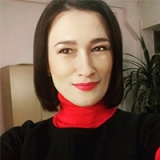What does it mean to be a volunteer in Ukraine
When Vladimir Putin announced mobilization in Russia the huge queues of people fleeing their country emerged almost at every check-point alongside its vast border. Russian men were a masses running away from a conscription campaign that is designed to bring up to a million new soldiers to the Russian army. The army that lost up to 50 000 men died during its brutal war against Ukraine and became a symbol of unhuman violence and atrocities.
Ukrainans perceived the news with sarcasm. In a comment to Putin’s conscription initiative, General Valerii Zaluzhnyi, Ukrainian Commander-in-Chief, said that his soldiers will destroy all enemies, no matter how many of them will come. And he had all the reasons for optimism.
In late February, after the first Russian missiles hit Ukrainian cities, the army recruiting offices were stormed by thousands of men and women who decided to defend their country. In a defensive war against Russia, Ukrainians have chosen to stay and fight, not to run and hide.
The amount of Ukrainians who are deeply involved in this war is remarkable. Apart from the 1 million mobilized soldiers there are millions of those whom Anne Applbaum defined as The Other Ukrainian Army – civilians who support and assist their army and their co-citizens in war affected areas on a volunteer basis. They are neither civil nor military servicemen, and they call themselves volonteri.
The non-combatant civil volunteer movement is an authentic Ukrainian phenomenon. It traces its roots back into Soviet times, when Ukraine was part of the USSR with some special privileges. Ukraine, alongside Russia and Belarus, was one of the cofounders of the UN. Kyiv was allowed to have its own Cabinet of Ministers and Parliament. However, all decisions were taken in Moscow. And the military, national security and law enforcement apparatus in Ukraine was submitted directly to Moscow, leaving for official Kyiv a little space for governance.
In this model Kyiv bureaucrats had no obligation to their own citizens. Most of them were loyal to Moscow, much more than to their own country and its people. No wonder that Ukrainins perceived their Soviet institutions as fake, repressive and colonial in their very nature. They did not rely on those institutions and concentrated on surviving using horizontal cooperation, which was a much more effective way of coping with things.
The problem of trust in state institutions remained unsolved for years. That was one of the reasons behind two Ukrainian revolutions – in 2004 and in 2014 – when Ukrainins demanded from their government creation of a "European state". This meant creation of the institutions people trust in the first place, and geopolitics at the second.
The paradigm shift happened in 2014 after Russia invaded Ukraine, annexing Crimea and occupying some parts of Donbas region. Suddenly Ukrainian army became the first state institution with a trust rating exceeding 50%. In 2014 Ukrainins discovered that their army was poorly equipped because of corruption, mismanagement and infiltration of Russian agents. And that was the moment when volonteri stepped on stage.
Regular people, previously not engaged in any civil activity, started to collect donations and equip their army with everything they could deliver, starting from uniforms and ending with ammunition. They were fast, competent and inclusive. Volunteer movement gave every Ukrainian a possibility to become a part of a vast force that was supporting its army and boosting its morale. And very soon volonteri took the second line in the institutional confidence rating just after the Army.
In 2022 volonteri increased their efforts many times. 81% Ukrainians have donated money to support their Armed Forces and 60% have donated money for humanitarian relief, according to the latest national poll, conducted by the National Democratic Institute in August. 37% said that they started to volunteer, and 21% conscripted to the army. This level of civil engagement dramatically distinguishes Ukraine from Russia, where up to 70% of the population believes that nothing depends on them and transfers their personal responsibility to the state.
Since February one of the leading volunteer organizations, the Come Back Alive Foundation, has raised more than $120 mln. Another volunteer organization, the Serhiy Prytula Foundation successfully raised $20 mln in 3 days to buy 3 Bayraktar UAVs for Ukrainian army, engaging more than 1,5 mln people. Volonteri not only supply their army with drones, UAVs, rifle scopes, night vision devices, medical kits, jeeps, communication ware and other military consumables. They also provide help to those in need either civilians or military.
Volonteri, alongside Army and military aid from the West, are the pillars in the foundation of Ukrainian victory. Their key objective is to create state institutions Ukrainians will trust in. They are one not just a part of civil society but one of the real drivers behind Ukrainian modernization. And when the new faces emerge in Ukrainian politics they will be either from volonteri or military community. And they will always find common language and share the same will to succeed.
Anastasiya Ringis






